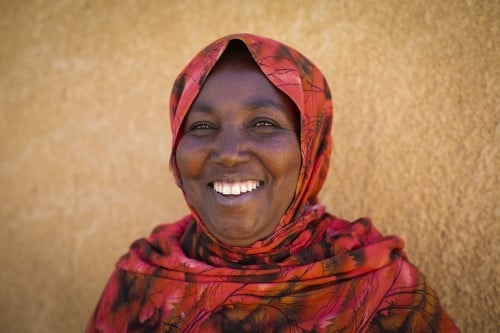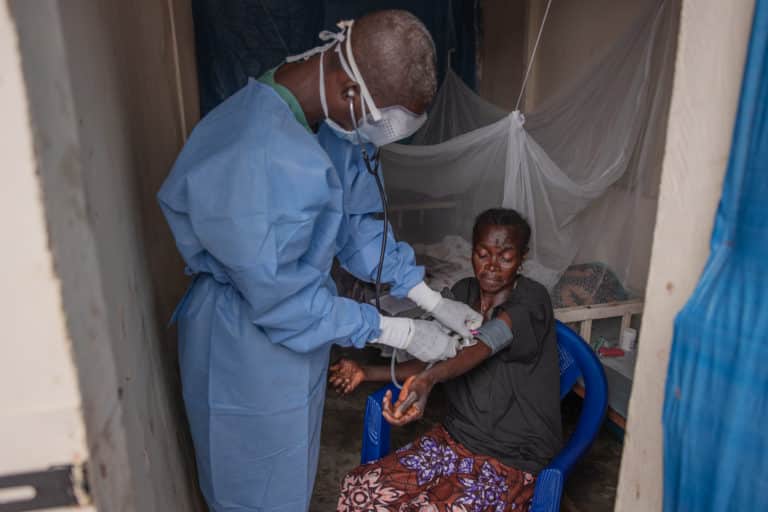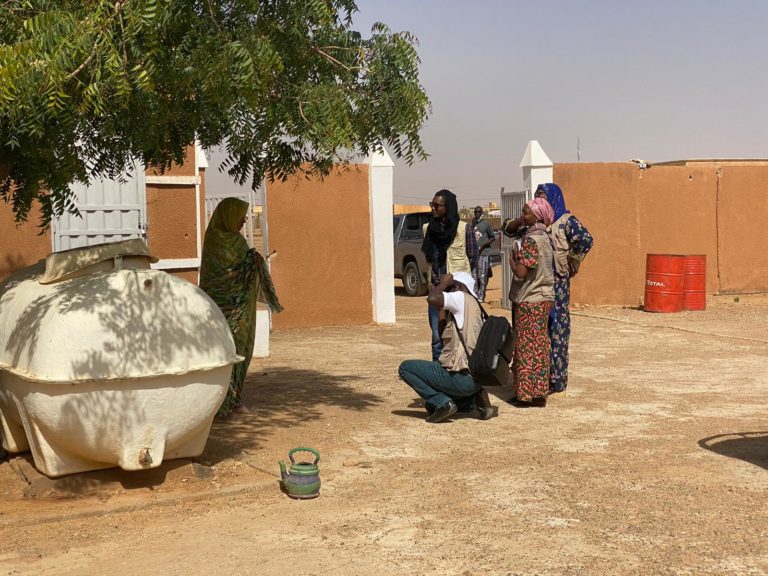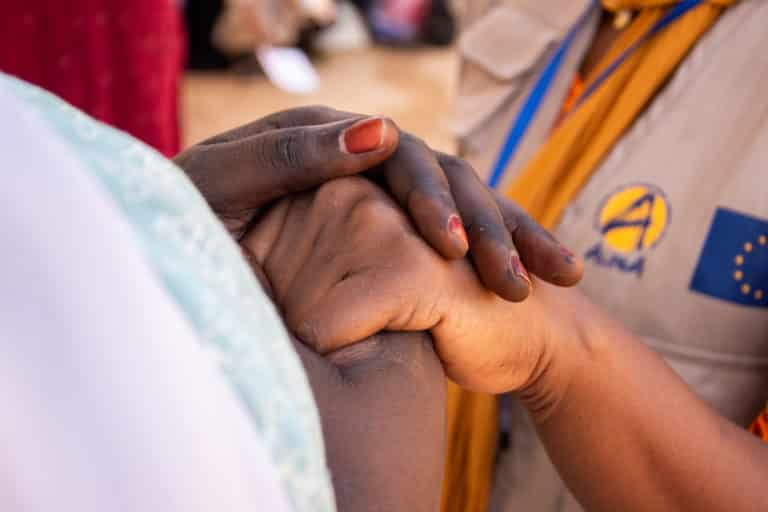If the community does not go to the vaccination, then the vaccination will come to the community. This is the solution implemented by ALIMA, alongside the health authorities, to increase vaccination coverage against COVID-19 in Mauritania. Given the context, where many communities do not have the means to travel to health centers to be vaccinated, we support the deployment of mobile teams. Thanks to an upstream community mobilization strategy and logistical support including equipment and vehicles, ALIMA accompanies medical teams so that they can meet with communities and offer vaccination sessions in remote villages. With the support of the European Union (ECHO), ALIMA is also working with health authorities in Guinea, Mali, Niger, Nigeria, Central African Republic, and Chad to implement similar COVID-19 vaccination campaigns targeting the most vulnerable people.
An effective strategy
“I chose to get involved in the COVID-19 vaccination campaign with ALIMA as the president of the Daoudi neighborhood. I care about my population and I want to make sure that they have access to important information,” says Slekha Mohamoud, a community liaison officer at the Bassikounou center in the southeast of the country, in the Hodh El Chargui region, bordering Mali. I want everyone to be aware of this epidemic and for as many of them as possible to be vaccinated. To do this, I go door to door, I make phone calls, and I organize rallies. At first, people were suspicious and didn’t want to hear about it, but now, with time and awareness work, they are the ones asking; especially the elderly. They wait for the medical teams to come to them.”

This strategy, although longer and more costly, is necessary to increase national immunization coverage. On this March morning, seven mobile teams are gathered at the Bassikounou health center before dispersing to the field. After receiving a general briefing and collecting the necessary vaccines and equipment, the cars loaned by ALIMA set off. Some teams even left for two days to cover as many areas as possible. When they arrive, after several hours on the road, the vehicles drive around the houses with a loudspeaker to inform the residents that a vaccination session will take place. The nurses call out to the people they meet and explain what is happening, telling them to meet them at the vaccination point. Once settled, the team sets up the coolers filled with vaccines, the medical records, and the vaccination cards that will attest to the validity of the procedure.
Getting people enrolled
Very reluctant to go and get vaccinated on their own, due to lack of information or means, the inhabitants nevertheless flocked by the dozens to receive their dose of vaccine. Confident in the teams that came to them and reassured by the support of the village chief, more than 300 people were vaccinated that day.
“I agreed that the vaccination campaign would take place in my village because it is important for everyone,” said Sidi Mohamed Barka, chief of the village of Lkhleil (1,600 inhabitants). “I thank ALIMA for coming all the way here because we are very isolated and there is no transportation. Without this, no one would be able to get vaccinated.”
Vaccinating refugee populations
In the same region in Mauritania, ALIMA also supports another vulnerable population: the refugees living in the Mberra camp, on the border with Mali. Particularly fragile and exposed to epidemics because of their displacement and living conditions, these people must be vaccinated against COVID-19 as a priority. In theory, refugees are now included in the national immunization plans of 162 states, but despite improvements in vaccine supply in the countries, administrative barriers and logistical difficulties still prevent many refugees from receiving their injections. This is why ALIMA has decided to support the Mauritanian authorities in this camp, which is currently hosting nearly 70,000 people.



